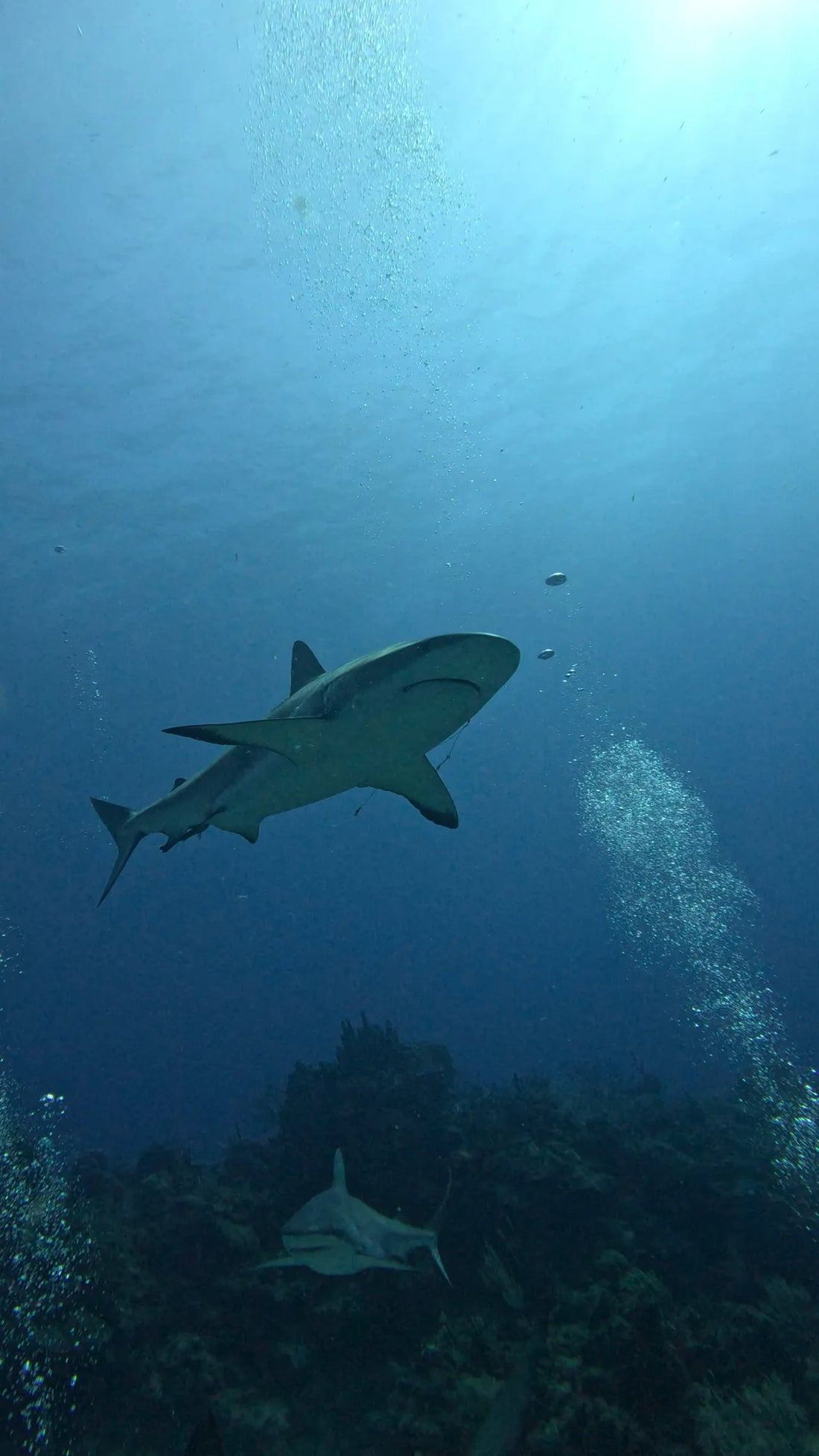
"Man-Eaters"
Share
Written By: Lauryn Niles
This is post 1 of 3 for the Shark Week series!
It’s hard to care about something we fear. Something that has become villainized on such a global scale. Our fears can act as blinders of truth, turning us away from potentially discovering something beautifully profound that has simply been misunderstood. The worries take over the little room we have left for empathy outside of ourselves. But when that wall of fear gets knocked down, we can experience quite a paradigm shift.
Many people fear the ocean. It is widely unknown, incomprehensibly deep and huge with a whole bunch of undiscovered species and untapped environments. People fear what lies underneath the surface, and the animal all too familiar with this spotlight is the shark, a completely misunderstood creature that has been on this earth longer than the dinosaurs. The shark has been stigmatized as a monster, and the general public has come to believe that when a human and a shark are in the same water, the shark will attack every time. This is miles from the truth. Sharks live amongst us in the ocean; it is their home. Not ours. According to the International Shark Attack File (ISAF), the death risk during your lifetime for a shark-related activity is 1 in 4,332,817. That is an insane odd, and you are more likely to die from a lightning strike, firework, or even taking a selfie… Yep. More people have died trying to catch that perfect picture of their face in recent years than they have died from a shark attack.
Put simply, sharks do not care about us. They do not avidly hunt for human flesh nor do they even like how we taste. Their infamous sniffer for our blood is a myth. We are not on their menu, yet we have come to perceive these animals as vicious attackers who hound us down because of our bleeding hangnail.
The truth is they rest in their ocean, their home, while we call it ‘shark-infested’.
So why is the shark so misconceived?
Why do their razor-sharp teeth and black eyes gain so much negative attention when this is just a fraction of what they are?
Let’s look at the media.
I blame media for a lot of things as much as I reward it for society’s progression. I recognize its strong capability and, oftentimes, success in instilling fear through mass communication.
I think we’ve all seen at this point in time how negative, shocking, and dangerous news points sell. Our interest is spiked when we see something threatening to our identity, health, or safety. In this case, many people have come to believe that all sharks are a threat to their safety. For a very long time, the media has depicted sharks as man-eating killers through fear-mongering news articles, using trigger language. Hollywood has also historically stigmatized this apex predator as a man-hunter. From the introduction of the box office hit, Jaws (1975), what proceeded were countless releases of movies that sparked an incredible fear in our minds. Rare shark attacks are beaten up by the media for clicks and profit. Because as we’ve seen, fear sells.
But there are ways to change this stigma around sharks through effective communication. We are seeing more and more awareness around their importance in the ocean as the apex predators, regulating all species below them.
Sharks are the heroes of the ocean and the only thing we should be afraid of is their absence from it.
Sources:
